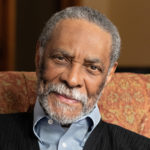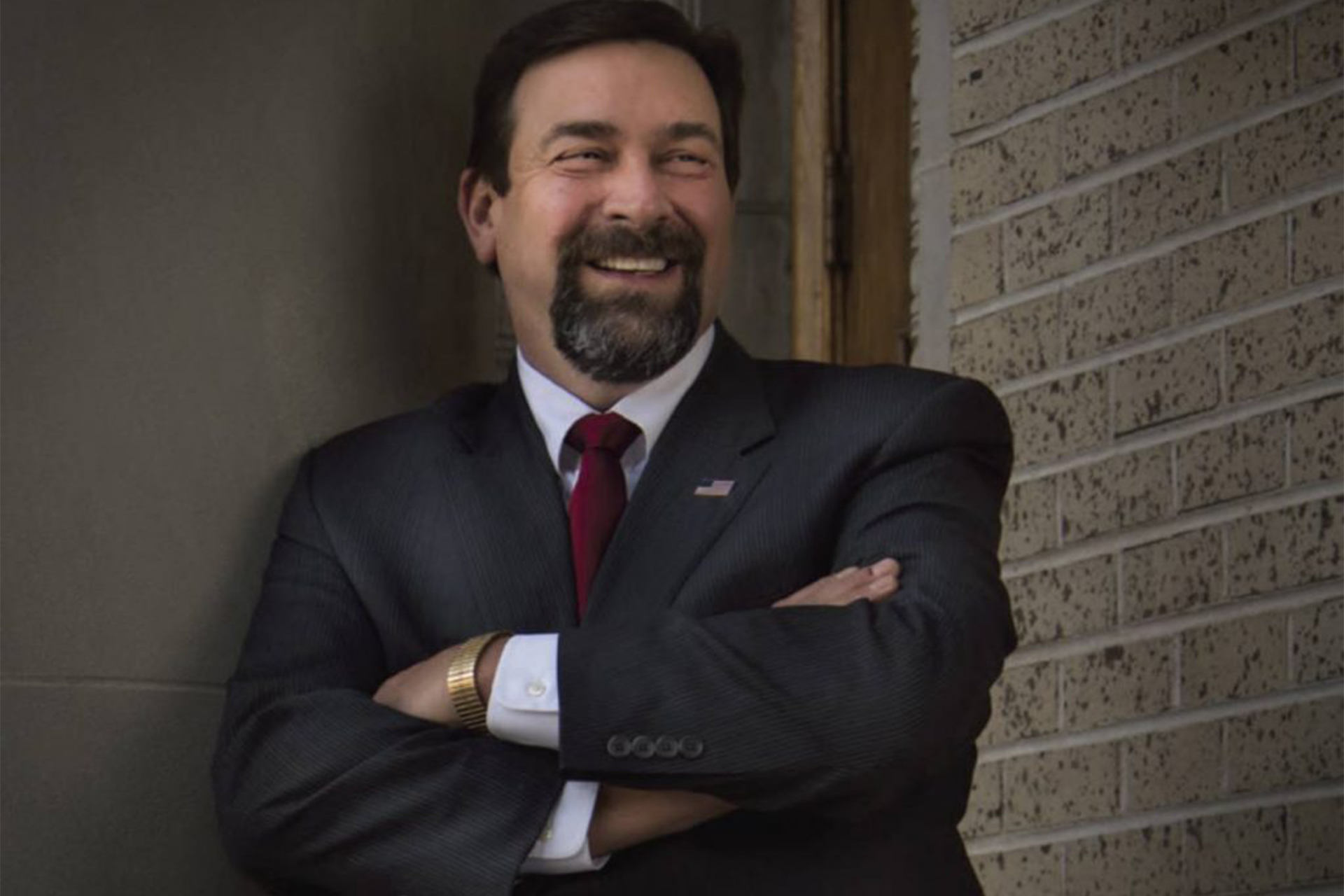
President Tony Frank, who has also served as chancellor of the CSU System since 2015, will transition to a full-time role as chancellor of the three-campus system on July 1, 2019. Photo by Mary Neiberg
At the sunset of Tony Frank’s presidency at Colorado State University, many agree that his legacy revolves around the physical and cultural transformations on campus he has piloted over the past decade.
But one of his long-time administrators points to something that seems like a minor detail at first: He signs his often-lengthy emails to campus with one lowercase word, “tony.”
While signing notes that way is something Frank has always done, Vice President for Student Affairs Blanche Hughes says the small touch speaks to Frank’s humility.
“He wanted people to see him as human,” she explains. “Even though he was president, he didn’t want people to put him on a pedestal or think he was special. What was always important to him was to be authentic, honest and caring.”
Celebrity status
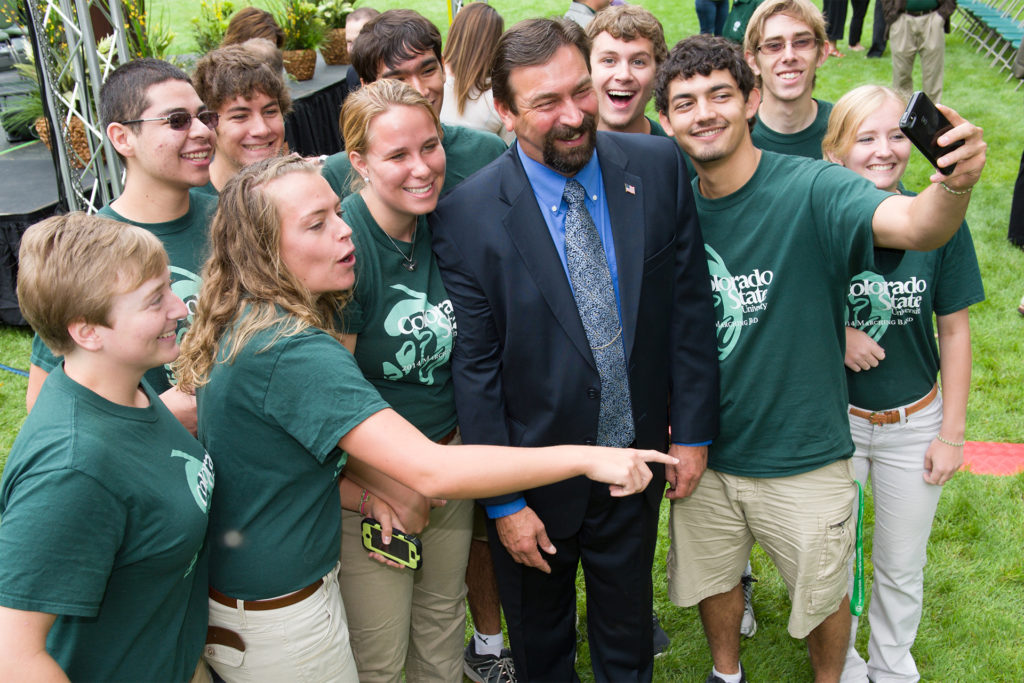
Frank’s ability to relate on a personal level is one factor that has made him so popular during his 11-year tenure as president. When Hughes walks across campus with Frank, she says, students often whisper, “That’s Tony Frank.” Then one brave soul will ask for a selfie with the president, typically leading to a small congregation of other students with similar requests.
How many college graduates, or even current students at other universities, can name — much less recognize — their institution’s president?
“The students appreciate his desire to have a relationship with them,” Hughes says. “It was very important to me, as vice president for student affairs, to have a president who liked the students.”
Similarly, many students pause to take a photo with Frank as they receive their degrees at commencement. Rico Munn, superintendent of Aurora Public Schools and outgoing chair of the CSU Board of Governors, has seen that interaction while sharing the stage with the president.
“The students and families don’t know who I am or care who I am,” he says. “But it’s pretty amusing to be behind Tony at those things, because they definitely know and care who he is, and they’re excited that he’s there — they’re excited to hear from him. And that kind of connection is so rare, especially for a college campus that is so large, to have so many constituents who all feel that personal connection to their leader.”
Cultural standards
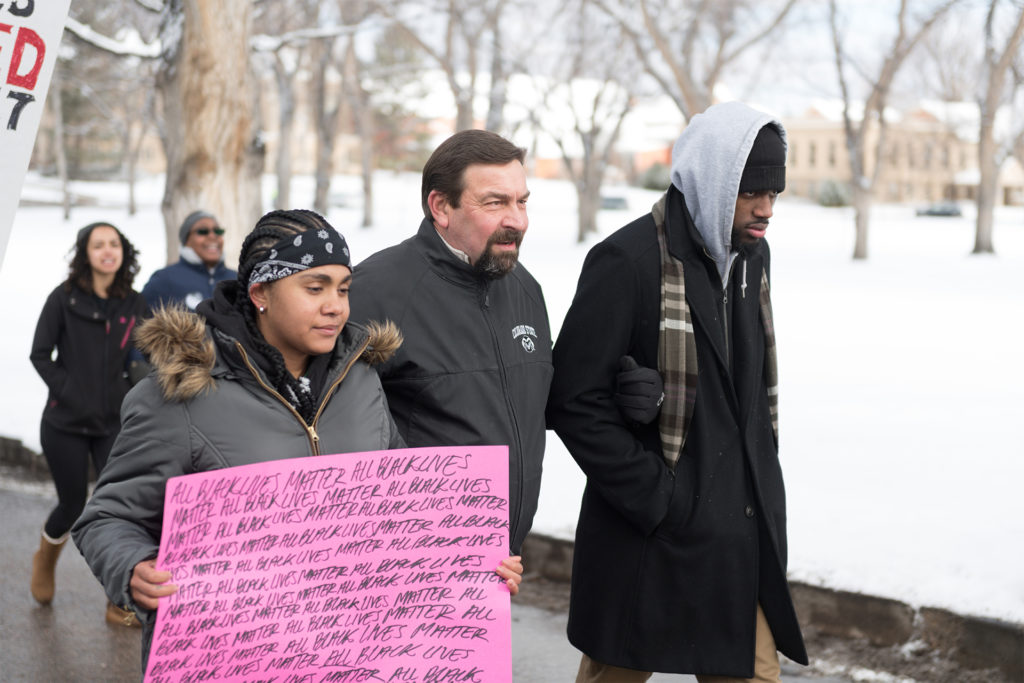
Kelly Long, vice provost for undergraduate affairs, points to Frank’s intentional and conscientious attention to issues of equity, diversity and culture, as he protected free speech while repudiating bias-motivated incidents and hate groups on campus. She cited as an example his February 2018 email responding to attempts by a white nationalist group to recruit on campus.
“The formation of the President’s Council on Culture was key in not losing sight of this issue of culture and who we are as CSU,” Long says, referring to the group Frank formed this academic year to continue to promote equity and inclusion. “And the Principles of Community, a reference point that we can continue to go back to, wouldn’t have happened if he hadn’t said, ‘We need to address these challenges.’ He will be remembered for infusing a personal touch and a sense of genuine caring from the highest level of our administration, even as the institution has grown.”
Pat Burns, vice president for information technology and dean of libraries, sat on the committee that recommended Frank for his first job in CSU’s central administration: vice president for research and IT. Burns points out that Frank faced significant financial challenges when he started as president, as the Great Recession was hitting the state budget hard. But instead of subscribing to an “austerity model,” Burns says, Frank decided to invest in quality.
Critical leadership
Munn, who before his tenure on the BOG served as executive director of the Colorado Department of Higher Education from 2009 to 2011, saw firsthand how Frank steered CSU through the recession.
“The challenge that he faced, and that all of us faced, was how to deal with the impact of dollars we had to cut out of budgets, and how to protect what was incredibly important to the state and the mission of CSU,” he says. “I think Tony’s deep understanding of — and connection to — that land-grant mission, and what made CSU unique and special, really was critical at that time. It’s tough to envision anybody else being able to do that.”
Burns also cites Frank’s experiences as a faculty member, department chair, and associate dean in the College of Veterinary Medicine and Biomedical Sciences as keys to his success.
“He’s held nearly every academic and administrative position in this university,” Burns says. “And that is incredibly important. Why did he think quality was important? Because he had walked the walk and talked the talk all those years. And he’s one of the most intelligent people I’ve ever met. Couple that with his communication skills, and that’s a rare combination.”
Judson Harper, now professor emeritus who preceded Frank as vice president for research, agrees that Frank’s ability to communicate has been integral to his success in areas like fundraising.
“One of his legacies is the physical change on campus, and most of that wasn’t done with state money but philanthropic giving,” Harper says. “He is an excellent speaker. He can paint a picture of what could be, and get people to rally behind it. Being a very good communicator helps, whether you’re trying to raise funds from donors or negotiate with the Legislature. I think to be a good administrative leader you need that, because you have to win over the confidence and support of a variety of constituents, both on and off campus.”
In his own words: Tony Frank
“One of the first questions I was asked in a public forum when I became president was, ‘What would you like your legacy to be?’ It froze me up. Back then, in 2008, we were more concerned with just staying open. But we have accomplished a lot over the past decade, and I’m proud of where we are now. I like the physical state of the campus, I like the financial foundation we’ve built, and I like that the university strives for excellence in everything we do.
“But most of all, I am proud that we think of ourselves as a land-grant institution, first, second and third. And we don’t think of it as an old, dated, historical term, but as the quintessential Lincoln-esque idea that no matter who you are or where you come from, we can provide you a place to take your talents and skills and hone them into a degree that can improve your life. The picture of who our students are has changed, but the idea has remained the same: That hope for a better future is as alive and vibrant today as it was 150 years ago. And we wear it as a badge of honor.”
Highs and lows
Hughes has both funny and heart-wrenching stories about Frank’s presidency. In one, he was meeting with the President’s Multicultural Student Advisory Committee in the Magnolia House when his chair broke and he fell to the floor.
“He stayed there, sitting on the floor in the chair, and everybody wanted to laugh,” she recalls. “The students kept looking to the advisers, including me, and we’re all trying to hold it together, but he just keeps talking, like nothing happened. He finally acknowledged it, and we all laughed, but he continued to sit there for another hour, until the end of the meeting. That’s something those students will never forget.”
One of the students later gave Frank a framed photo of the moment, which Frank displayed in his office.
“Tony made us all feel like we were part of something bigger,” Hughes said. “I wanted to do good work because I wanted to make him proud.”
On a more somber note, Hughes remembers when a CSU student died from medical issues, and the President’s Office offered for the student’s parents to meet with Frank. Upon entering Frank’s office, the mother went straight into his arms and collapsed, sobbing.
“He held her and just let her cry,” Hughes says. “And I thought, ‘That’s Tony right there.’”
And that soft-spoken compassion and humanness are reflected in the deliberate simplicity of his signature.
“When he started signing his emails with just ‘tony,’ some people questioned it,” Hughes concludes. “But when he became president, he said, ‘I’ve got to do this my way.’”
What do you think will be CSU President Tony Frank’s legacy?
“Without doubt, Tony Frank will be remembered as one of the great leaders of CSU and, indeed, of Colorado higher education. His wit, intellect and humor have combined to build support, disarm opposition and create a steady path to success and distinction. Under his leadership and articulate advocacy, CSU has enhanced its stature as one of the country’s premier land-grant universities, cemented its position as the state’s University, and is regarded as the destination university for students of all backgrounds and interests.”
– Former CSU President Al Yates
“As a student, and now a professional working at CSU, I have had the privilege to work with Dr. Frank in many different settings. Throughout his time at CSU, I have found him to be a compassionate and strong leader, trying to always put students first. Working with him, even in unfortunate situations regarding the treatment of marginalized students, Dr. Frank was always willing to listen and take a strong stance on issues related to social change. Not many college presidents seem to truly be advocates for inclusion and student success, including supporting students of color, survivors of interpersonal violence, LGBTQ+ students, and other students from underrepresented populations. I feel like he has set a good foundation for CSU to move forward as a leader in higher education.”

– Tiffani Kelly, assistant director, Native American Cultural Center
“I think when we talk about his legacy, the first mention is generally his accomplishments as president of CSU: graduation rate (especially first-generation students), the billion-dollar donor campaign, his tackling of equal pay, the infrastructure growth on campus, along with a long list of other impressive accomplishments. However, the true essence of his legacy will be his character: Dr. Frank was willing to listen to students, faculty and staff, and he never treated criticism as just complaining, but saw it as problems he needed to address. He embraced his role as president with both vigor and humility, and I know his legacy will show his passion for students and our success above all else.”

– Tristan Syron, 2018-19 president, Associated Students of Colorado State University
“Tony’s dedication to the researchers working to achieve sustainable development for people and the planet, and his commitment to educating our students to take charge of these global challenges, has positioned CSU as one of the top institutions tackling sustainability in the nation and the world.”

– University Distinguished Professor Diana Wall, director, School of Global Environmental Sustainability
“Tony Frank’s influence over Colorado State University and the Colorado community will be felt for a lifetime. His legacy will live on in two initiatives I’ve had the privilege to be involved in: Women and Philanthropy and the Nancy Richardson Design Center. Connecting and empowering a community to elevate women and philanthropy at CSU is a direct result of Tony’s 2012 charge to make Colorado State University the best place for women to work and learn. Dr. Frank also supported and encouraged the vision for the Nancy Richardson Design Center, an iconic new design center on campus that provides state-of-the-art classrooms and laboratories to inspire creativity, innovation and entrepreneurship by integrating design concepts across multiple disciplines.”

– Nancy Richardson (B.S., ’82), entrepreneur and philanthropist
“I think people will reflect on Tony’s tenure as a time of tremendous growth for CSU. Growth not just in buildings, which is the obvious footprint, but growth as far as CSU’s reputation, its impact, its service to the community. Tony’s time here in the president’s role has impacted thousands of students and families, and therefore impacted generations of families who have had more opportunity and a chance to grow through their connection to CSU. And that’s something we’re all grateful for.”
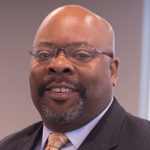
– Rico Munn, outgoing chair, CSU Board of Governors
“Tony provided outstanding leadership of CSU during the recession, which ensured CSU would retain a strong foundation and could continue its land-grant mission of providing a quality education for all who choose to come here. He’ll long be remembered for his genuine compassion for students, faculty and staff.”

– Mark Gill, chief of staff
“The infrastructure improvements achieved during his tenure as president will remain a lasting legacy serving the research, education and engagement missions of the university for decades to come. I’m sure Tony’s advocacy for education will continue to resonate across the CSU system, as well as throughout Colorado, at all levels of the education enterprise, as he continues his role as chancellor.”

– Hank Gardner, retired associate vice president for research
Share your memories
Would you like to share your memories of Tony Frank’s years as president of CSU? Email source@colostate.edu with Tony Frank in the subject line.
